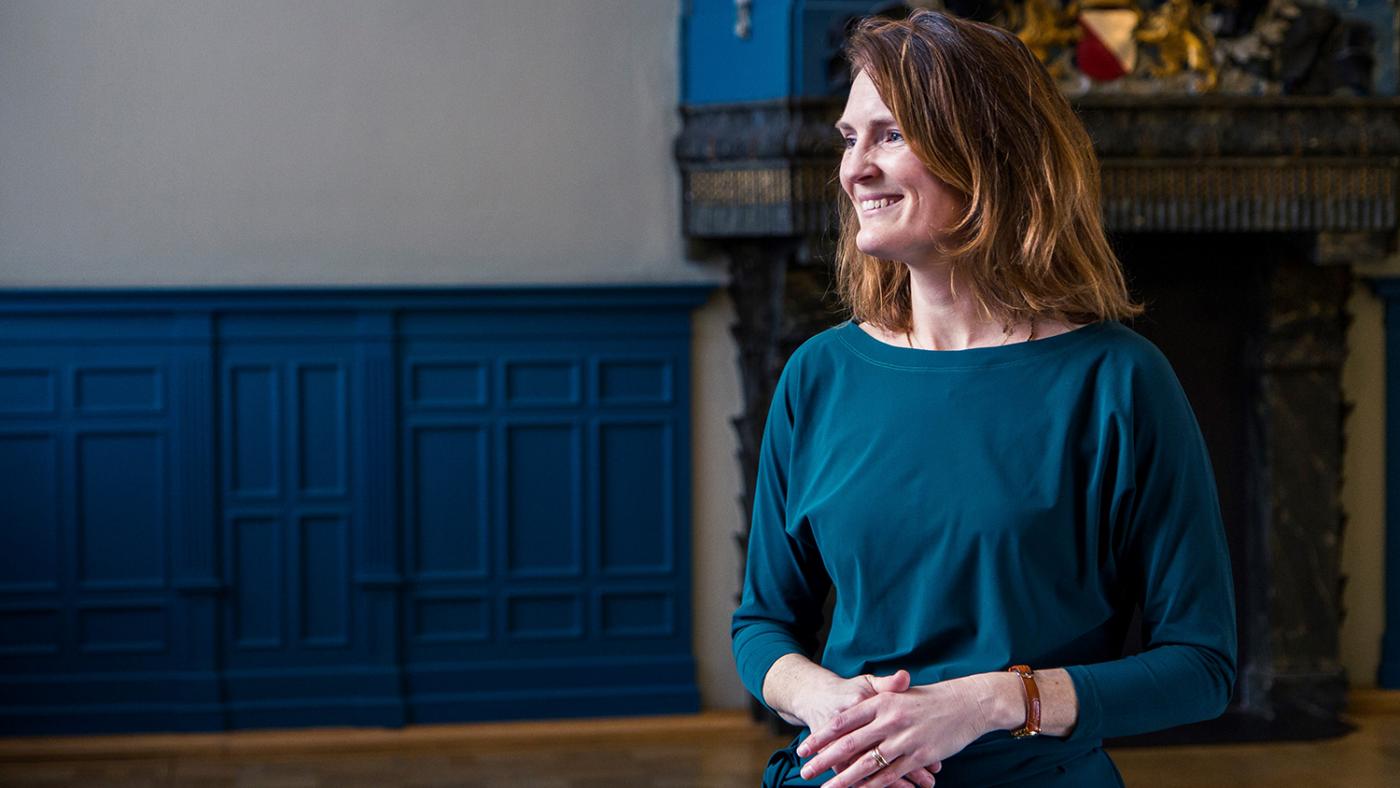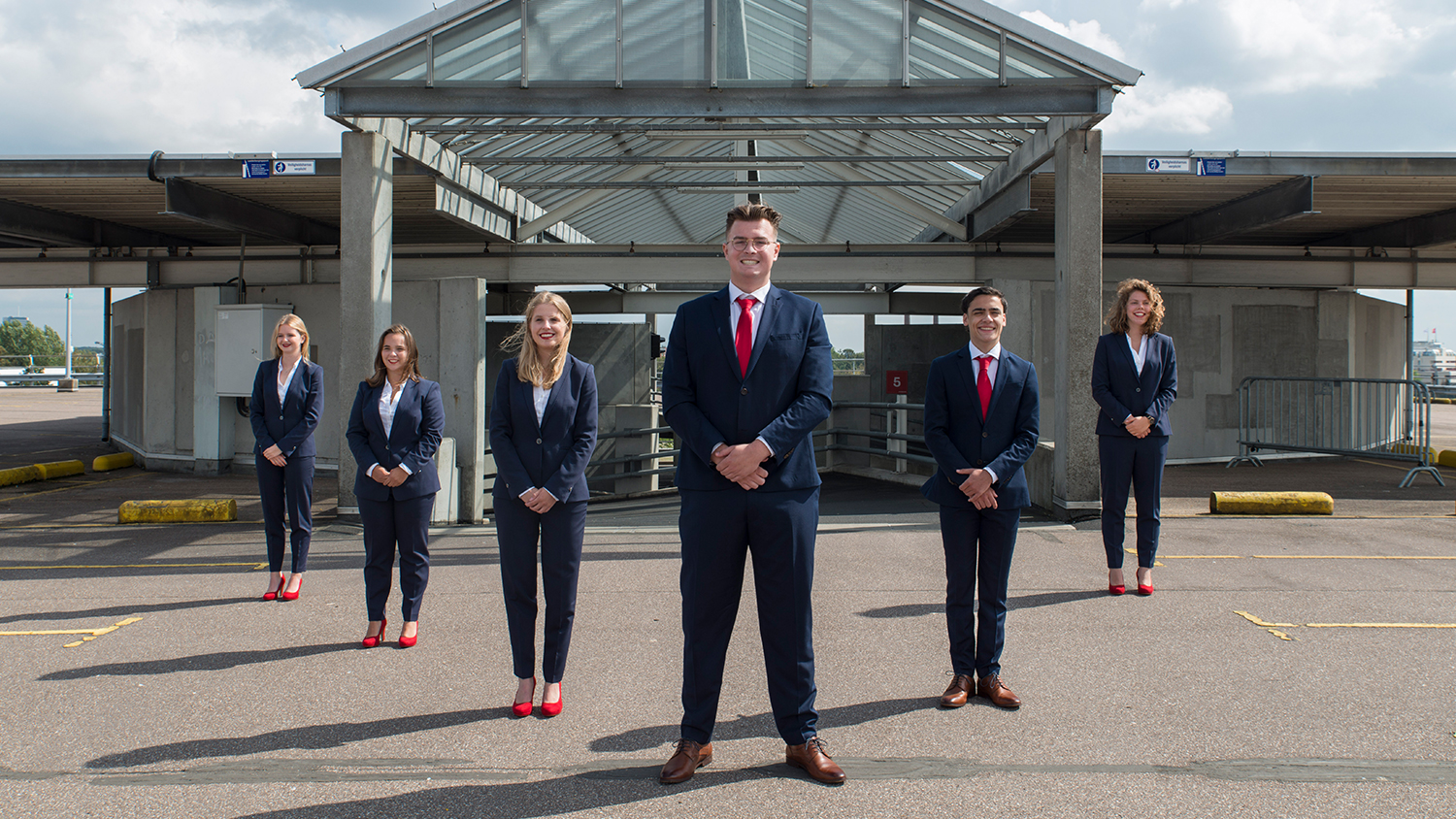Teacher of the Year Lotte Henrichs: ’More attention is being paid to good education'

Congratulations, Lotte Henrichs! How do you feel?
"Thank you! I am very happy. It's a huge honour to receive this prize. It's nice that my efforts to link university research with practice are being seen. Traditionally, university education has always been theoretical. But the fact is there is room to approach things in a slightly different way and to test education in practice, that's an important signal.
“The fact that I won this prize for building bridges between the university and society at large is in line with the trend to recognise and reward scientific personnel. Previously, a scientist's appreciation came when he or she published as much as possible in high impact journals. But now educational activities are also being appreciated. To put it exaggeratedly, education seemed to come second. Those days are over, in my opinion. People used to say that we train students to become researchers, but that's no longer the case. It's much broader than that".
You are an assistant professor at the Alpo, Academic Training for Primary Education Teachers. How did you get there?
"That was a while ago. I did a postdoc in Educational Sciences. One of the professors had many of the same interests as I did. He taught a course on equal opportunities in education for Alpo students. Little by little, I was allowed to take more and more tasks from him, such as supervising and coordinating work groups. When he retired, it had already become my course".
Besides teaching, you are also involved with the development of education.
"That's right. In September 2019, I was appointed as Assistant Professor in Educational Sciences. As a result, I became more involved in the programme. Alongside a colleague from Alpo, I started developing a Teacher Track for the Master's in Educational Sciences. We saw that our Alpo students often wanted to continue studying following the Bachelor's degree, in which they gained practical teaching experience, but then lost the connection with teaching practice. They thought that was a shame, so the Teacher Track has become part of the Master in educational sciences.
"I am also involved with Workplace Education Research Utrecht (Werkplaats Onderwijsonderzoek Utrecht), a project supporting several primary schools with conducting research at their own school. I also teach at the UU's Graduate School of Teaching. This is where the teacher training courses are housed and I am a lecturer within the Pedagogy course".
According to the jury, you won the Teacher of the Year Award because you build bridges between people, the university, society and practice. Their report highlighted your commitment to linking practice with research. What exactly do you do to establish that connection?
"At the Werkplaats, I always try to involve students, so they do research in schools in the field. They can do that in the context of their thesis, for example. And that thesis would relate to research already being done at that same school by another colleague.
"Master's students also conduct practical research. They really do it in close collaboration with the teacher of the school, which is positive for both sides: the teachers see research on education being carried out in real time, while the students conduct research that matters immediately. The students work quickly and are very critical, that goes without saying. I no longer have to actively link the university with practice, that happens automatically.
“In my own research - which lately has been focusing on the impact of school closures on how children in primary and secondary education are learning - I also involve students. Six Alpo and Educational Science students are being paid to participate as student researchers. I take them completely seriously and I expect a lot from them. We have meetings every two weeks and they also provide me with constructive criticism, which I really appreciate. They really think along with me. Alpo students are very good at that, in my view. They know how the dynamics work at a school and that there is little time".
Dagmar Bon and the board of Alpo's study association Vocus nominated you for this prize. She said one of the reasons you were chosen is that you make an effort to generate more appreciation for Alpo students at primary schools. Why is it important that colleagues in primary education see Alpo alumni differently from those who followed a regular teacher training?
"This is a very important question and a rather sensitive one. We do not claim that Alpo people are necessarily better teachers. But their added value is that they have knowledgeable of scientific research and the latest insights. They're trained to be educationalists. So, they are able to ignite changes at a school, for example. They can think very carefully about what is needed to create support for educational innovations. Those are things you don't really learn at the regular teacher's training".
 The chairs of VOCUS 2020-2021. (Dagmar Bon is the second one from left to right)
The chairs of VOCUS 2020-2021. (Dagmar Bon is the second one from left to right)
"It is crucial that we continue to speak out about this. Because what we sometimes hear from alumni in the field is that they are looked at with resentment. '' You just graduated, you just came to have a look, while I have been here for 15 years', teachers say. That requires quite a lot of soul searching for many of them. How should they present themselves? I try to close that gap of misunderstanding and adapt the programme so that the step towards the labour market gets smaller".
You have conducted research about teaching during the coronavirus pandemic, with the help of Alpo students. How do you experience teaching at the moment?
"I have mixed feelings. What I really enjoyed, was finding out how I could do this well. The University was quick to offer us a series of webinars, which I eagerly attended. Enabling interaction, the theory of having a short film ready in advance, that sort of thing. It was a lot of work.
"But I also really like the energy that is released when you stand in front of a class. Students sitting up straight and thinking along. Asking each other questions and discussing. I miss that sparkle completely now, with online education.
"What I do do now is stick around in the online conversation after each lecture. That way, students can still ask me questions. I also use a lot of mentimeters. One student said: 'Your online lectures are almost more interactive than your physical lectures'. I was very happy to hear that".
Did your research into teaching during the pandemic provide you with any insights for your own classes?
"The research was really about a different target group, namely primary school children. What makes a big difference to children's success is how well they can regulate their own behavior. A 'challenge' in between can help, for example. The latest reports show that higher education students have the same thing. How do you ensure that they stay focused and do not sink into idleness? It looks like they also need a nice moment to get online. At Education Sciences, we organize informal but substantive 'community activities' on Friday afternoons, which are well attended. That demonstrates how much students need that. I think that's exactly the same as a challenge for the sixth grade".
“Every year, Vocus' board (Alpo and Educational Sciences) awards a Vocus Teacher Award for an exceptional teacher. Lotte won this accolade last November. Students' stories about her teaching style are incredibly positive. She shows what you can do with your Alpo skills at a school, by diving into practice. Because academic teachers are so new, she wants to strengthen their role so that they can reach their full potential. She also adapts the programme in response to the experiences of alumni in the professional field. The theory is really being used. That is why we nominated her for UU's Teacher of the Year award”.